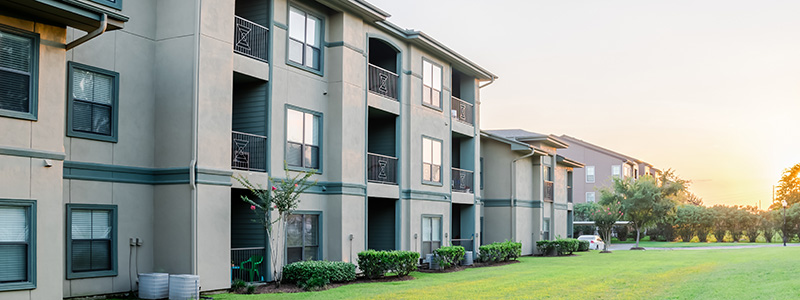
There are a number of simple things you can do around the house to save money on energy costs all year-round.
Ways to Slay Energy Vampires
Make sure your new electronic gadgets don't suck your wallet dry.
Many TVs, DVD players, cell phone chargers, power adapters, computers and other electronics use vampire power, or standby power, even when they’re turned off. Although individually these devices typically draw only a very small amount of power, together it adds up, especially when left plugged in 24 hours a day, seven days a week.
To combat these energy vampires and reduce your consumption, unplug the appliances when not in use. Using a surge protector with multiple sockets will allow you to turn off multiple devices with one switch. A timer can automate turning on and off those electronics that are used on a regular schedule.
Replacing battery powered devices, such as cordless phones or rechargeable razors, with corded alternatives also cuts down on the standby power required to charge the battery and reduces energy lost in battery charging.
The Winning Number Is... 78
Air conditioning and heating can account for more than 50 percent of the electric bill! To keep cool during summer's heat, set your air conditioning thermostat at 78 degrees. When you leave your house, turn it up a few notches to 85 degrees or higher and plan on a savings of 6-8 percent for each degree you raise the setting. In the winter, set your thermostat at 68 degrees.
Breezy Does It
Installing ceiling fans throughout your home will help you stay comfortably cool. In fact, you could raise your thermostat several degrees and not feel the difference. Turn fans off in unoccupied areas.
Made In The Shade
Close those curtains! Or mini-blinds, or shutters—and you'll keep the summer's heat out. During winter months, open your shades again and let in the warm sunshine. For extra shade, plant plenty of trees and shrubs.
Open And Shut Case
Looking for a snack? Try to figure out what you want before you head for the fridge. Frequently opening and closing the refrigerator door can increase your electric bill. For extra energy savings, clean the condenser coils behind or underneath the refrigerator every six months.
Change Is Good
Change or clean heating and air-conditioning filters monthly. Dirty filters put an unnecessary strain on the unit and can increase operating costs.
Tweak Those Leaks
Check air handler and ductwork for leaks and weather-strip or caulk around windows, doors, plumbing and other gaps so that heating and cooling energy won't escape. Check for water leaks, too. Toilets, in particular, should be checked often.
All Washed Up
Run your clothes or dishwasher only when you have accumulated a full load. You'll save on the electricity that heats the water and runs the appliances. Also, be sure to clean the dryer lint filter after every load.
Ready, Aim, Sprinkle
Water your lawn before 10 a.m. This saves water from evaporation. Don't overwater and avoid watering the street and sidewalk by aiming your sprinkler away.
View here to learn about the Waterwise Enforcement Team's on-the-lookout for irrigation violations.
A Good Read
Learn to read your electric and water meters so you can monitor your usage.
Shed Some Light On The Subject
Try replacing incandescent lights with LED. LEDs give you the same light output, but for one-third to one-half the cost. They also produce less heat for your air conditioner to cool.
Cool Suds
Try using the cold or warm setting on your clothes washer instead of hot. You'll be amazed at the savings. Set your water heater to 125 degrees.
Consumer Tax Credits
A tax credit can provide significant savings. It reduces the amount of income tax you have to pay. Unlike a deduction, which reduces the amount of income subject to tax, a tax credit directly reduces the tax itself. Find out which energy efficiency Federal Tax Credits you qualify for.

If your electric bill is higher than you want it to be and you'd like to bring it down... then you need to know what's making it go up.
Here are the culprits:
Plug Into Savings
You can take a number of steps to lower your electric bill, including:
Raise The Bar
The easiest way to save energy is to raise your thermostat a little when it's warm outside, and lower when it's cool. In the summer, keep your air conditioner thermostat set at 78 degrees or higher. Turn it off completely or set it at 85 degrees when you're away from home for more than four hours.
Less Is More
During winter months, set your heat thermostat at 68 degrees or less, and turn it down to 55 degrees at bedtime. (Add an extra blanket or comforter.)
Fantastic Idea
Use circulating fans to increase comfort; turn them off in unoccupied areas.
Monthly Ritual
Clean or replace air conditioner filter monthly.
Ready, Reset, Go
Reset both upper and lower thermostats on your hot water heater to 125 degrees or lower.
Off You Go!
If you leave your apartment for two days or more, turn off the power to your hot water heater at the circuit breaker.
Cool Suds
Wash and rinse your clothes in cold water.
Made In The Shade
Use shades, drapes, blinds or other window coverings to keep out summer heat and winter cold.
For more information, download the Apartment Energy Guide brochure
Energy Conservation Videos (English)
Energy Conservation Videos (español)